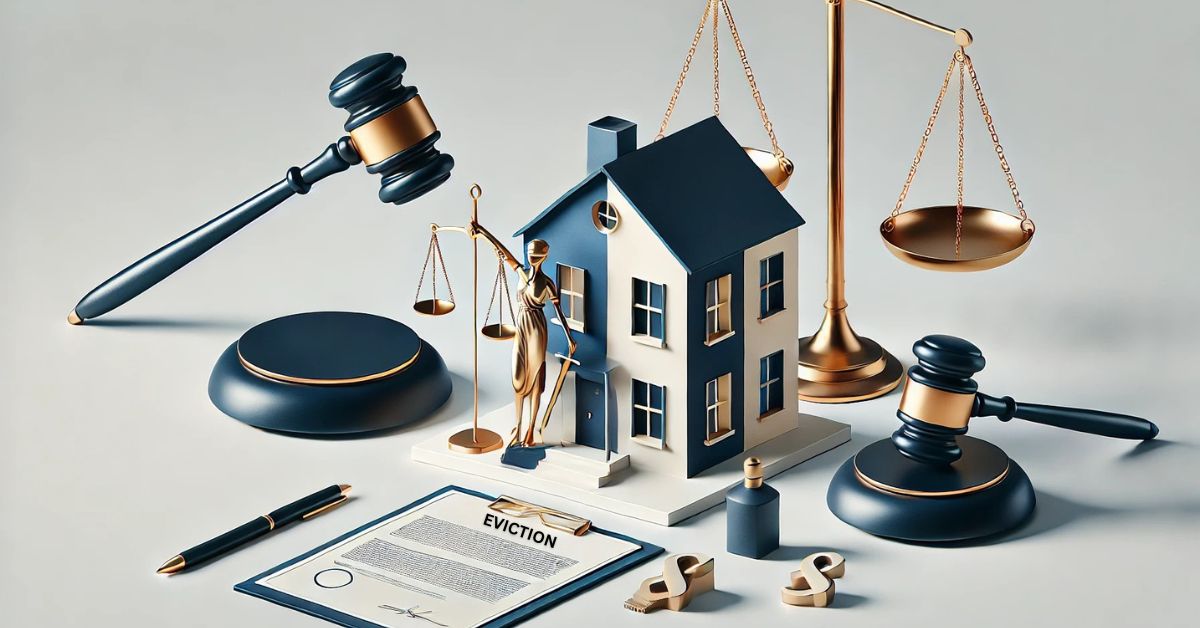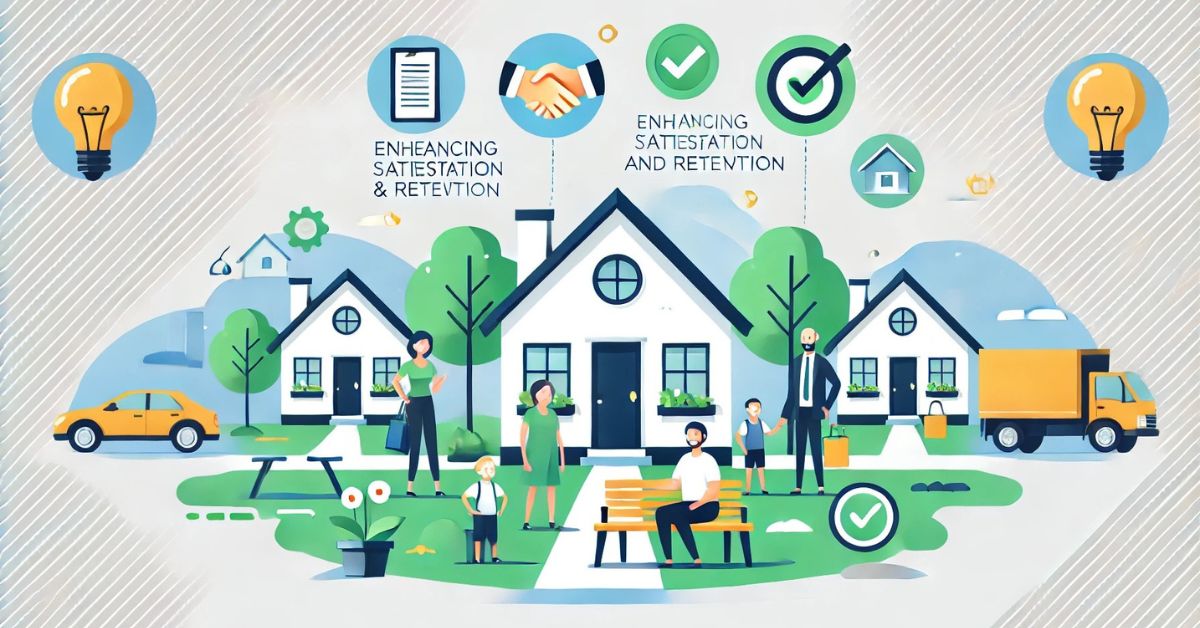Property management is a multifaceted discipline requiring a keen understanding of both the market dynamics and the operational intricacies that govern rental properties. Whether you're a seasoned real estate investor or a property owner managing single-family homes or smaller multi-unit properties, the complexity of property management can be daunting. Ensuring compliance with local laws, maintaining tenant satisfaction, and achieving profitability are just a few of the challenges one must navigate. This article delves into common challenges in property management solutions and provides insightful strategies to overcome them.
Navigating Local Laws and Regulations
One of the foremost challenges in property management is staying abreast of local laws and regulations. These laws can vary significantly not just from state to state, but also within different municipalities. For instance, in a bustling city like Atlanta, the regulatory landscape can be particularly complex, with specific ordinances governing everything from security deposits to eviction procedures. Keeping up with these changes requires constant vigilance and an understanding that what applies in one area may be entirely different just a few miles away.

Understanding Legal Requirements
It's imperative for property owners to have a comprehensive understanding of these legal requirements to avoid costly fines or legal disputes. This necessitates a proactive approach to legal education, often involving consultations with legal professionals specializing in real estate law. Developing a robust understanding of fair housing laws, tenant rights, and property safety standards is crucial. Additionally, attending workshops and seminars can help property managers stay informed about changes in legislation and best practices in compliance.
Understanding the nuances of each regulation is essential, as minor oversights can lead to significant liabilities. Implementing a system for regular updates on legal changes, perhaps through subscriptions to legal bulletins or membership in professional organizations, can be beneficial. Regularly reviewing lease agreements and operational procedures with legal counsel ensures that all practices are up-to-date and legally sound, mitigating potential risks.
Implementing Compliance Strategies
To ensure compliance, the property managers you hire must implement strategies that integrate legal checks into everyday operations. This might include regular training sessions for property management staff, utilizing legal checklists for tenant interactions, and employing technology solutions that alert managers to changes in local laws. Embedding compliance into the culture of property management teams ensures that all staff members are aware of their legal responsibilities.
Furthermore, employing a dedicated compliance officer or team can be invaluable in larger property management operations. These professionals focus solely on ensuring that the organization adheres to all legal requirements and can provide guidance on complex issues. Investing in compliance management software can also streamline processes, automatically updating property owners on new laws and providing digital audit trails for regulatory inspections.
Enhancing Tenant Satisfaction and Retention
Tenant satisfaction is a cornerstone of successful property ownership. Happy tenants are more likely to stay long-term, reducing turnover rates and ensuring a steady rental income. Moreover, satisfied tenants tend to take better care of the property, reducing maintenance costs and enhancing the overall value of the property portfolio.

Effective Communication
The foundation of tenant satisfaction lies in effective communication. Your property manager must establish clear lines of communication, ensuring tenants feel heard and their concerns addressed promptly. This can be facilitated through regular tenant meetings, surveys, and feedback mechanisms. Establishing multiple communication channels, such as email, phone, and dedicated apps, allows tenants to choose their preferred method, increasing engagement.
Creating a responsive tenant portal or app can significantly enhance communication by allowing tenants to submit requests, receive updates, and access important documents all in one place. Regular newsletters or updates about community events, maintenance schedules, and policy changes can also keep tenants informed and engaged, fostering a sense of community and trust.
Maintenance and Upkeep
Regular maintenance and timely repairs are vital in retaining tenant satisfaction. A proactive approach to property maintenance not only keeps the property in optimal condition but also demonstrates to tenants that their living environment is a priority. This can be achieved by scheduling routine inspections and utilizing property management software that tracks maintenance requests and resolutions. Ensuring that maintenance staff are well-trained and equipped to handle issues promptly can enhance tenant trust and satisfaction.
Incorporating preventative maintenance plans can further reduce unexpected repairs and extend the lifespan of property assets. Encouraging tenants to report issues as soon as they arise, perhaps through an easy-to-use app, ensures that minor problems do not escalate into costly repairs. Clear communication about maintenance procedures and timelines can also help manage tenant expectations and reduce frustration.
Achieving Profitability in Property Management
Profitability remains a central concern for property owners. Balancing operational costs with revenue generation requires strategic planning and a keen eye for efficiency improvements. By optimizing operations and maximizing revenue streams, property managers can ensure the long-term viability of their investments.
.jpg)
Cost Management
Effective cost management is integral to profitability. This involves scrutinizing operational expenses and identifying areas where efficiencies can be gained. Utilizing home management services that offer bundled services can reduce costs and streamline operations. Conducting regular audits of expenses can uncover areas of waste or inefficiency, providing opportunities for cost-saving measures.
Investing in energy-efficient upgrades and technology can also lead to long-term savings by reducing utility costs. Negotiating bulk service contracts or seeking competitive bids for maintenance and service providers can further drive down operational expenses. Keeping detailed financial records and forecasts enables property managers to make informed decisions that align with financial goals.
Maximizing Rental Income
To maximize rental income, your property manager must remain competitive in the rental market. This involves conducting regular market analyses to set competitive rent prices and offering amenities that attract quality tenants. Additionally, leveraging rental property management software can provide insights into market trends and tenant preferences, aiding in strategic decision-making. Offering flexible lease terms or incentives, such as reduced deposits or free utilities for a month, can attract new tenants and enhance occupancy rates.
Enhancing the property's appeal through renovations or updates can justify higher rental rates and attract a more discerning tenant base. Understanding the local market and demographic shifts can also inform decisions about property improvements or marketing strategies. Offering premium services or amenities, such as high-speed internet, concierge services, or fitness centers, can further differentiate the property and command higher rents.
Leveraging Technology in Property Management
In today's digital age, technology plays a pivotal role in property management, offering solutions that enhance efficiency, accuracy, and tenant engagement. By adopting the latest technological advancements, property managers can streamline operations, improve tenant satisfaction, and enhance overall profitability.

Property Management Software
The use of comprehensive property management software can revolutionize the way properties are managed. These platforms offer a suite of tools designed to streamline operations, from tracking rent payments and maintenance requests to managing tenant communications and generating financial reports. Automation of routine tasks frees up property managers to focus on strategic initiatives and tenant relations, enhancing overall efficiency.
Advanced data analytics capabilities within these platforms can provide valuable insights into property performance, tenant demographics, and market trends. This data-driven approach allows property owners to make informed decisions, optimizing marketing strategies and operational procedures. Investing in a robust property management system can lead to significant time and cost savings, ultimately improving the bottom line.
Online Payment Systems
Implementing online payment systems not only simplifies the rent collection process but also provides tenants with a convenient and secure payment method. This reduces the likelihood of late payments and enhances cash flow predictability. Offering multiple payment options, such as credit card, direct bank transfer, or digital wallets, can accommodate tenant preferences and improve satisfaction.
Moreover, online payment systems often come with automated reminders and confirmations, reducing administrative burdens and minimizing errors associated with manual processing. Providing a transparent and user-friendly payment portal can also enhance tenant trust and engagement, leading to higher retention rates.
Tailored Strategies for Single-Family and Multi-Unit Properties
Managing single-family homes and smaller multi-unit properties requires a tailored approach that considers the unique challenges and opportunities inherent to these property types. By understanding the distinct needs and dynamics of each property type, managers can implement strategies that maximize tenant satisfaction and property performance.

Single Family Property Management
For single-family properties, personalized service and attention to detail are crucial. Property owners should focus on creating a home-like environment that appeals to tenants seeking stability and a sense of community. This can involve offering personalized services such as landscaping or housekeeping, which enhance the tenant experience and foster long-term leases.
Building strong relationships with tenants through regular communication and personalized touches can lead to higher retention rates and positive word-of-mouth referrals. Understanding the specific needs of families, such as proximity to schools or parks, can also inform marketing strategies and property improvements, ensuring that the property remains attractive to potential renters.
Multi-Unit Property Management
In smaller multi-unit properties, the focus should be on fostering a community atmosphere while maintaining individual tenant satisfaction. This can be achieved through communal events and amenities, as well as ensuring each unit is well-maintained and issues are promptly addressed. Creating shared spaces, such as gardens or lounges, can encourage tenant interaction and build a sense of community.
Implementing a responsive maintenance and communication system is essential in multi-unit properties, where issues can quickly affect multiple tenants. By prioritizing transparency and responsiveness, landlords can enhance tenant trust and satisfaction. Regular community events or meetings can also provide opportunities for feedback and foster a collaborative living environment, ultimately improving tenant retention and property reputation.
Quick Property Management Tips
Streamline your property management with these key tips:
- Automate Tasks – Use property management software to handle rent collection, lease renewals, and maintenance requests efficiently.
- Maintain Proactively – Schedule regular inspections and preventative maintenance to reduce costly repairs and keep tenants happy.
- Foster Good Communication – Respond promptly to tenant concerns and set clear expectations to build trust and encourage lease renewals.
- Know Your Market – Stay updated on local rental trends to set competitive rates and attract quality tenants.
Conclusion
Challenges are abundant, yet so are opportunities for improvement and innovation. By understanding and addressing the complexities of local laws, enhancing tenant satisfaction, optimizing profitability, and leveraging technology, property managers can transform these challenges into stepping stones for success. Whether owning single-family homes or multi-unit properties, a commitment to professional and tailored property management solutions is essential for achieving a profitable and stress-free property investment experience.

.webp)
